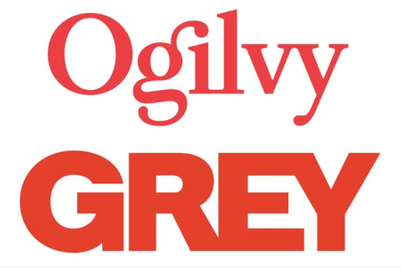
What a glorious time to be alive. Last year brought us a tidal wave of painful developments. So called leaders running on lies, cruelty and populism won elections across the globe. Truth and honesty are becoming rare and endangered notions. The planet is heating faster than Greta can say “shame on you” and a million species are threatened by extinction as a result.
Confusingly, it was also the best year ever to be a human being. Poverty, illiteracy, disease, child mortality, access to electricity and clean water all reached record levels of positivity and hope.
True to form, the world of advertising tried our level best to follow suit—we invented “wokewashing” as an innovative add-on to greenwashing. We contributed to the near obliteration of trust in social media and influencers, and watched in-housing, automation and cost-cutting push us further down the value-chain.
Confusingly, it was also one of the most interesting years ever to work in the creative industry. Emerging technologies have brought limitless opportunity for innovation. Truly original and inspiring ideas are finding a constantly growing platform of earned engagement. Mediocre and unimaginative work face an even tougher battle for attention.
This year, it’s time for the pendulum to swing back firmly towards investing in the power of strategic thinking and insights to provide fuel and direction to breakthrough ideas.
Creative communication has never had more impact, while the agencies traditionally responsible for creating the communication are struggling to stay relevant and profitable. The zealous pursuit of squeezing the cost of marketing continued last year, in tandem with an over investment in performance marketing. Is this the beginning of the end for the creative communication industry?
The strategists strike back
Predictions are often similar to wishful thinking, but I firmly believe that these confusing times have set the scene for a resurgence of strategy as a secret weapon for brands and agencies alike.
This year, it’s time for the pendulum to swing back firmly towards investing in the power of strategic thinking and insights to provide fuel and direction to breakthrough ideas. As Binet and Field have shown, insightful strategic and creative work can be 10 times more effective.
The core principles of effective strategy are only marginally affected by the tech revolution. On the other hand, the strategic challenges to overcome as well as the tools available to bring the strategy to life have multiplied as a result. How can our brand beat the competition by living up to the UN’s Sustainable Development Goals ahead of time while still driving growth? What strategic collaborations will create new relevance for a generation obsessed with gaming?
The rise of sustainable strategy
In an era when the cost and time to market keep shrinking, it’s crucial to remain flexible and nimble about how and where to deliver the message. Brands like TikTok and Fortnite didn’t exist three years ago and have a billion (TikTok) and 250 million users (Fortnite) today.
A brand or its’ agency’s capability to craft stories that people find compelling enough to share and discuss will never go out of style. However, to achieve real behaviour change, brands should consider recalibrating their strategy to use consumption as a force for positive impact.
A good place to start could be to re-frame the relationship from client and consultant to a collaboration between partners, creating value for mutual benefit as well as the greater good.
Global corporations have massive clout to change the world for better or worse. Alphabet, the parent company of Google, is already fully powered by renewable energy, while the world’s 20 most polluting companies have contributed to 35% of global greenhouse gas emissions since 1965.
In short, brands should devote more time and effort to re-define their foundations for tomorrow. On the other hand, their brand purpose is only as inspiring as the company and its actual practices. The values they believe in and their point of view on how to improve the impact they have on our planet and its’ inhabitants would benefit from being humble, honest and rooted in reality.
The partnership awakens
It’s no mean feat to become a trusted strategic advisor, but a good place to start could be to re-frame the relationship from client and consultant to a collaboration between partners, creating value for mutual benefit as well as the greater good.
A brilliant example is how RBK, the agency behind Doconomy, used the insight of how difficult it is to understand our personal impact on climate change and applied financial transparency to help change consumption. An initiative that resulted in major investments from (and a partnership with) Mastercard. What business-driving, value creating strategies and ideas could we bring to the table as an agency partner?
To stay nimble and flexible, Grey set up an accelerator for early-stage startups in the marketing technology space to have cutting edge expertise at our fingertips. It has proven invaluable for uncovering insights and ideas in areas far from our previous comfort zones. With our tech partners it’s easier to understand and engage consumers who have left traditional channels for good, whether it’s about earned content for closed WhatsApp-groups, a long-form partnership with Netflix or creating a bespoke gaming title for Apple’s Arcade.
Agencies and brands who bet on the disproportionate value of strategic advice and insights as a tool for growth and positive change will find that 2020 could indeed be a glorious time to be alive after all.
Måns Tesch is chief strategy officer for Asia-Pacific, Middle East and Africa at Grey.




.jpg&h=334&w=500&q=100&v=20250320&c=1)

.jpg&h=334&w=500&q=100&v=20250320&c=1)
.jpg&h=334&w=500&q=100&v=20250320&c=1)

.jpg&h=334&w=500&q=100&v=20250320&c=1)
.jpg&h=334&w=500&q=100&v=20250320&c=1)
.jpg&h=334&w=500&q=100&v=20250320&c=1)






.jpg&h=268&w=401&q=100&v=20250320&c=1)

